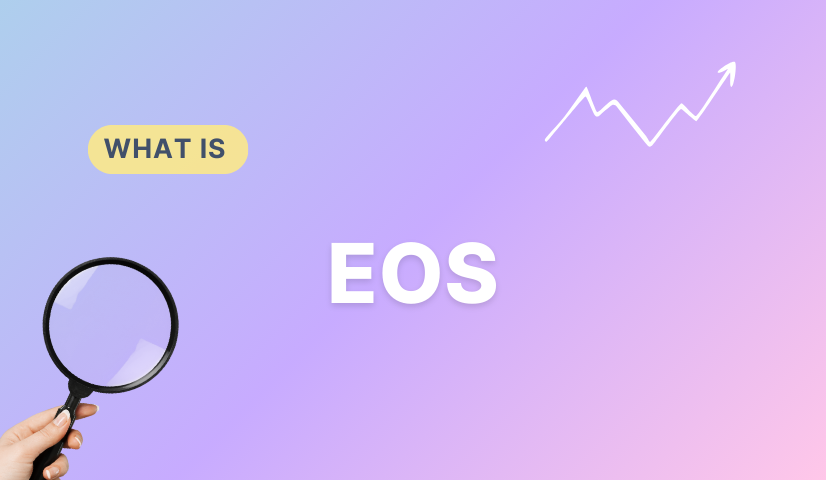
KEYTAKEAWAYS
EOS is a blockchain-based decentralized operating system that provides developers with an infrastructure to build decentralized applications (dApps). It was launched in June 2018 by Block.one, a blockchain company based in the Cayman Islands. The goal of EOS is to provide an easy-to-use platform for developers to create and deploy decentralized applications with high scalability, flexibility, and speed.
EOS is similar to Ethereum in that it provides a platform for developers to build decentralized applications. However, EOS is designed to be more scalable and user-friendly than Ethereum. It uses a delegated proof-of-stake (DPoS) consensus mechanism, which is faster and more efficient than Ethereum's proof-of-work (PoW) mechanism.
EOS tokens are used to power the EOS blockchain and are required for developers to deploy their dApps on the EOS network. EOS tokens can also be used for voting on changes to the EOS protocol and for staking to become a block producer.

CONTENT
Features of EOS
- Scalability: EOS is designed to be highly scalable, with the ability to process millions of transactions per second. This is achieved through the use of a DPoS consensus mechanism, which allows for faster transaction processing than traditional PoW mechanisms.
- Flexibility: EOS provides a flexible development environment for developers to build dApps. It supports multiple programming languages, including C++, Python, and Rust, making it easy for developers to build on the platform.
- User-friendly: EOS is designed to be easy to use for both developers and users. It provides a graphical user interface (GUI) that simplifies the process of deploying and interacting with dApps.
- Decentralized governance: EOS is governed by a decentralized community of block producers who are responsible for maintaining the network. Any changes to the EOS protocol must be approved by a supermajority of block producers.
- Token economics: EOS tokens are used to power the EOS blockchain and are required for developers to deploy their dApps on the EOS network. They can also be staked for voting on changes to the EOS protocol and for staking to become a block producer.
Use cases of EOS
- Decentralized applications: EOS provides a platform for developers to build decentralized applications for a wide range of use cases, including finance, gaming, social media, and more.
- Decentralized finance (DeFi): EOS supports a growing ecosystem of DeFi applications, including lending platforms, decentralized exchanges, and more.
- Token issuance: EOS provides a platform for issuing and managing digital assets on the blockchain.
EOS is a blockchain-based decentralized operating system that provides developers with an infrastructure to build decentralized applications with high scalability, flexibility, and speed. It is designed to be easy to use and provides a flexible development environment for developers to build dApps. EOS has a wide range of use cases, including finance, gaming, social media, and more, and supports a growing ecosystem of DeFi applications.









